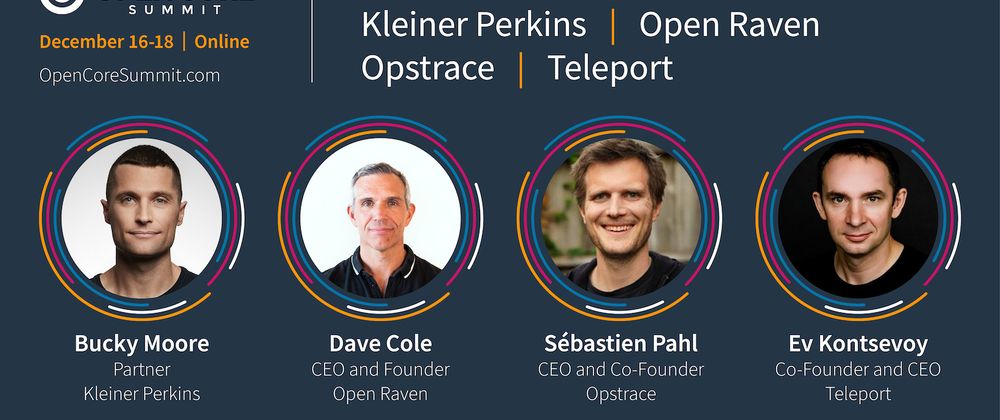Bucky Moore is a partner at Kleiner Perkins, where he partners with founders at the earliest stages building technical products for technical end users. He works with a number of such companies as a board member and investor, including Open Raven, Gravitational, Netlify, Prisma, Labelbox, Codesandbox, Opstrace, Stackbit, and Effx. Prior to entering the venture business, he was a member of the Corporate Development team at Cisco Systems, where he helped identify and execute on inorganic growth opportunities on behalf of its cloud and data center infrastructure business including acquisitions, venture investments, and joint ventures. Bucky graduated from the University of Southern California with a BSc in Business.
Relevant Links
LinkedIn - Twitter
Ev Konstevoy is a software entrepreneur specializing in cloud computing. Building great teams and engineering products that people love is what he does. He is also a hands-on hacker, angel investor and advisor to a few startups.
Relevant Links
LinkedIn - Twitter
Sebastien Pahl has worked at Cloudflare, Mesosphere and Red Hat in San Francisco. Building teams and projects. Co-founded Docker, a Y-Combinator startup. Passionate about large scale platforms, developer tools, automation, open source, distributed systems and cooking.
Relevant Links
LinkedIn - Twitter
Dave Cole has had his hand at a dizzying variety of challenges that range from building an enterprise product from scratch to acquisition (Foundstone) to transforming a consumer product line (Norton). Dave was the driving force that took CrowdStrike’s nascent product line with a handful of small customers and established it as a disruptive force in the industry which has fueled the company’s explosive growth. He was also Chief Product Officer of Tenable where he steered the team through an aggressive growth phase, culminating in a successful initial public offering in the Summer of 2018.
Relevant Links
LinkedIn - Twitter
This panel explores the second wave of cloud computing adoption- Cloud. 2.0, and the resulting dynamics of building COSS businesses today.
Bucky introduces Cloud 1.0 and Cloud 2.0. Cloud 2.0 is the opportunity and threat of a lifetime. - 0:00
Purpose of the session, and panel introductions - 1:50
Ev introduces himself and Teleport (a unified access plane for infrastructure, enabling developers to access any computing resource in the world) - 2:27
Sebastien introduces himself and OpsTrace (a private open-source monitoring platform) - 3:13
David introduces himself and OpenRaven (exploring the next-phase of security: data protection, through an open-source platform.) - 4:08
Bucky: Let’s explore the implications of Cloud 2.0 era for open core software consumption. How should we think about this? (Ev and Sebastien respond) - 5:14
Bucky: The next topic I’d love to hit on is packaging. From hosting, to single-tenet hosting, to on-prem, there’s a spectrum of approaches to deploying and consuming open core software in the cloud today. I’d like to go through the right way for our audience to think about approaching these decisions and ultimately determine what’s best for their companies. (David, Ev, and Sebastien respond) - 10:26
Bucky: There seems to be this world emerging where every layer of the stack has an open-source alternative. The database, the middleware, and up the stack. I think we’ll conclude at some point that some of these layers are less suitable for building quality commercial open source businesses than others. I’d love to hear from you, if you have any mental models or frameworks, on, what makes a good open source opportunity? What does not? (Sebastien responds) - 17:05
Bucky: One of the things I’ve found to be endlessly fascinating is the delicate balance between the need to understand the experience your users are having with your product and continue improving on that product, without compromising on the ideals of open source that center around security and transparency. Some companies implement phone home functionality, others do not. Some companies track who downloads their binary, others do not. Does anyone have a position on this? (David, Ev, and Sebastien respond) - 19:30
Closing thoughts - 23:44
Share your questions and comments below!



Top comments (0)